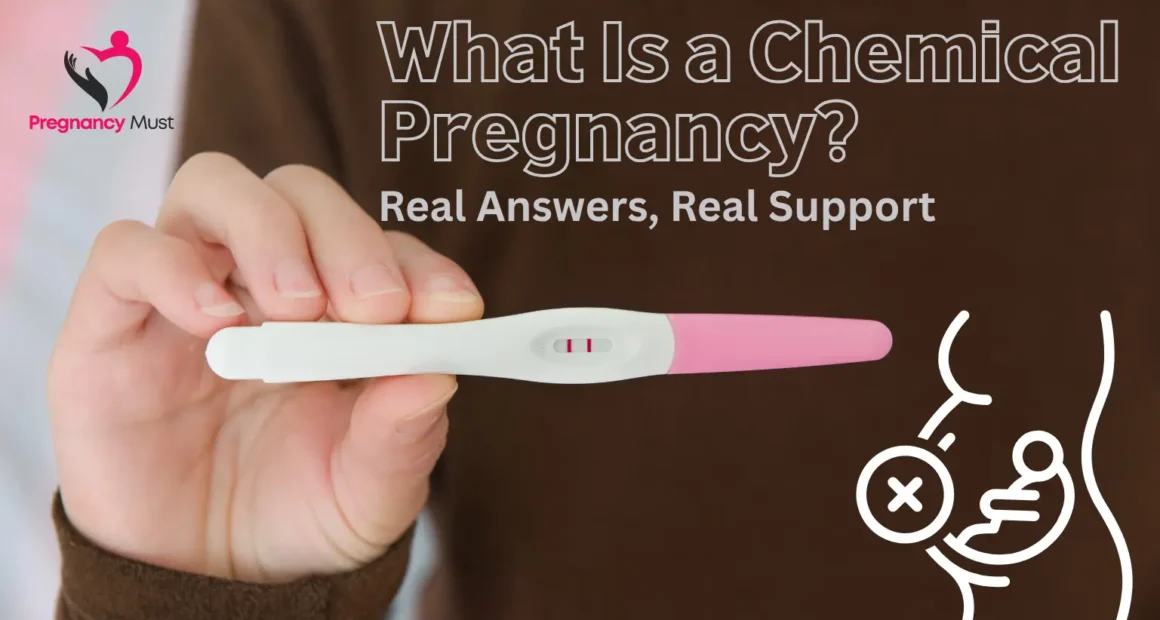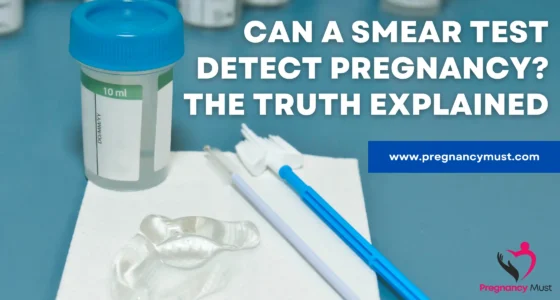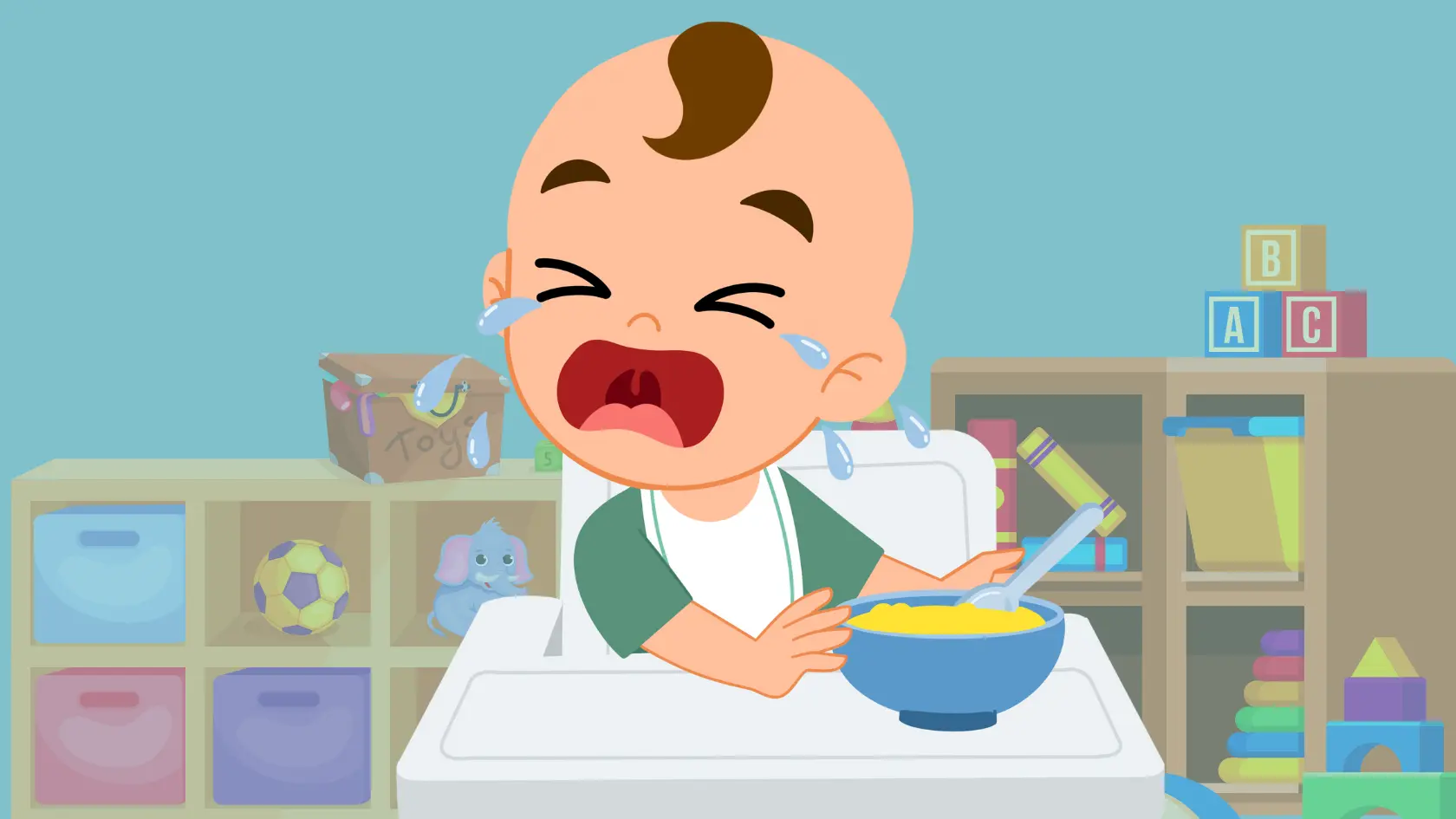“What is chemical pregnancy?” is a question many women ask when they see a positive test followed by bleeding. This article explains everything clearly and gently. Many women feel confused because the experience happens so fast, making it hard to understand what really occurred. Learning the facts can help you feel more supported and less alone during this emotional time.
Table of Contents
Understanding the Basics
What Is Chemical Pregnancy?
A chemical pregnancy occurs when a fertilized egg implants in the uterus but stops developing within the first few weeks. Because it ends so early, many women don’t notice anything unusual beyond a slightly late or heavier period. Hormone levels rise just enough for a positive test, but the pregnancy cannot progress. The body recognizes that the embryo isn’t developing properly and naturally resets the cycle, which is why symptoms often feel very similar to a normal menstrual period, even though a brief pregnancy did occur.
Why Is It Called a Chemical Pregnancy?
The term comes from the fact that the pregnancy is detected only through the chemical measurement of hCG—the hormone picked up on pregnancy tests. There is no visible evidence of pregnancy on ultrasound yet, so the diagnosis relies entirely on hormone levels rather than imaging. This is why many women only discover it if they test early. Without that test, the loss would likely pass unnoticed, making the term “chemical” simple shorthand for a pregnancy detectable only through lab-based methods, not medical imaging.
Is a Chemical Pregnancy a Real Pregnancy?
Yes. Once implantation occurs, even briefly, it is medically considered a pregnancy. A chemical pregnancy is simply an early miscarriage that happens before ultrasound milestones like a gestational sac or heartbeat appear. Although early, it involves real biological changes and often real emotional impact. If you felt excitement, concern, hope, or sadness during this time, those emotions are completely understandable. The early timing does not minimize the significance of what you experienced, and healthcare providers treat it as a legitimate pregnancy loss.
What Causes a Chemical Pregnancy?
Main Causes
Chromosomal abnormalities in the embryo
Most chemical pregnancies occur because the embryo develops with the wrong number or structure of chromosomes. This prevents it from growing normally. These genetic issues happen naturally and randomly during fertilization, and nothing the mother does causes them. When the body recognizes the embryo cannot survive, it ends the pregnancy early. This is a natural protective process.
Random errors during early cell division
After fertilization, the embryo begins dividing quickly. Sometimes errors occur during this rapid growth, causing the embryo to stop developing. These early mistakes are common and usually happen without any warning signs or controllable factors. The body responds by stopping the pregnancy.
Maternal age-related risks
A research article published on “Fertility and Sterility” mentioned that when women get older, especially after age 35, egg quality can decline, increasing the chance of chromosomal issues. This slightly raises the risk of chemical pregnancies. Even so, the majority of early losses remain natural accidents, not age-related problems.
Hormonal imbalances
Low progesterone, irregular ovulation, or other hormonal shifts can make it harder for an embryo to implant or grow. These conditions can affect the early environment needed to support a pregnancy, leading to early loss if hormone levels drop too soon.
Body’s natural detection of a non-viable pregnancy
The body is very good at recognizing when an embryo is unlikely to survive. When something is wrong genetically, the pregnancy often ends before it reaches a stage where complications could develop. This is the body’s natural way of protecting future fertility and overall health.
Additional Biological Factors
Poor egg quality
Eggs with weaker structure or genetic instability may fertilize but fail to grow properly. This issue becomes more common with age, but it also happens in younger women due to random variations in egg health.
Sperm abnormalities
Even healthy men can produce sperm with DNA fragmentation or structural problems. These sperm can fertilize the egg, but the embryo may not grow well, leading to an early loss before a heartbeat is ever seen.
Thyroid problems
Both low and high thyroid function can interfere with implantation and early development. A poorly controlled thyroid condition may make it harder for the embryo to stay attached to the uterus, causing an early miscarriage before pregnancy progresses.
Uterine lining issues
A thin or unstable uterine lining may not support early implantation. Even if the embryo attaches briefly, it may detach if the lining cannot maintain it. Conditions like polyps or fibroids can also affect the early environment.
Lifestyle-Related Contributors
Extreme stress
While everyday stress does not cause pregnancy loss, severe or long-term stress may disrupt hormonal balance. This can affect ovulation or early implantation in some women, but it is rarely the main cause of a chemical pregnancy.
Nutritional deficiencies
Not getting enough essential nutrients—like folate, iron, or vitamin D—can occasionally influence early pregnancy health. These deficiencies affect hormone regulation and cell growth, but they usually contribute only slightly.
Certain medications or medical treatments
Some medications may interfere with early pregnancy hormones or implantation. While doctors usually guide patients on safe medicines when trying to conceive, unexpected interactions can sometimes influence early pregnancy outcomes.
Symptoms and Timing
When Does a Chemical Pregnancy Happen?
Chemical pregnancies typically occur between weeks 4 and 6 of pregnancy—around the time your period is due. Many women notice bleeding a few days late, sometimes accompanied by stronger cramps or heavier flow than usual, which may be the only outward sign of the loss. Because the timing aligns so closely with the menstrual cycle, many people never suspect they were briefly pregnant. This is also why chemical pregnancies can be emotionally confusing—everything happens so quickly that it may feel difficult to process.
How Common Is a Chemical Pregnancy?
Chemical pregnancies are prevalent, especially among women who test early. A review article entitled “The Chemical Pregnancy” mentioned that up to 50–75% of early miscarriages fall into this category. Many go unnoticed because the bleeding resembles a normal menstrual cycle, so the actual number is likely even higher. As people increasingly test before their expected period, more chemical pregnancies are being detected. It’s important to remember that experiencing one does not mean anything is wrong with your fertility, and most women conceive again without difficulty.
Signs and Symptoms
How Do You Know If You Had a Chemical Pregnancy?
A typical pattern is a positive pregnancy test that becomes faint or turns negative within a few days, followed by bleeding. The period may be slightly heavier, with mild clots or stronger cramps. Most women won’t pass noticeable tissue because the pregnancy ends so early. Emotional symptoms can also appear, as the sudden shift from hope to loss may feel jarring. Tracking pregnancy tests closely often reveals these early changes, but many people learn about chemical pregnancies only after experiencing one themselves.
What Does It Feel Like?
Emotionally, a chemical pregnancy can bring confusion—joy from a positive test mixed with the disappointment of an early loss. Physically, symptoms usually mimic a menstrual cycle, although some women experience more cramping or fatigue as hormone levels rise and then quickly fall. The rapid hormonal changes can create mood swings or heightened sensitivity. For some, the physical recovery is quick, but the emotional aspect may take longer. It’s entirely normal to grieve, even though the pregnancy was brief.
How Is a Chemical Pregnancy Detected?
Home pregnancy tests may show a faint positive that fades as hCG levels drop. A doctor can confirm the loss through two blood tests taken a few days apart. If hormone levels decline rather than rise normally, it indicates an early miscarriage. Because ultrasounds cannot detect a chemical pregnancy, the diagnosis depends entirely on timing and hormone patterns. Some women also track basal body temperature or ovulation, which can reveal subtle shifts that confirm the early end of a pregnancy.
Is a Chemical Pregnancy a Miscarriage?
Yes. A chemical pregnancy is a miscarriage—it simply occurs earlier than most people associate with the term. Later miscarriages happen after an ultrasound has already shown a gestational sac or fetal heartbeat, while chemical pregnancies end before that stage. This can make them feel overlooked, but they are recognized clinically as pregnancy losses. Despite their early nature, they can still trigger emotional responses, and many women benefit from support, reassurance, or guidance from healthcare providers afterward.
What Happens After a Chemical Pregnancy?
Your body usually recovers quickly. Hormone levels drop within days, and your menstrual cycle often resets within 4–6 weeks. Emotionally, healing varies. Some feel ready to move on quickly, while others need time to process the sudden change from positive test to loss. It can help to talk with a partner, friend, or support group. Most women experience no physical complications, and the next cycle usually proceeds normally. Understanding what happened often brings a sense of closure and reassurance.
What Should You Do Afterward?
Rest, stay hydrated, and monitor your bleeding. Seek medical attention if you experience intense pain, fever, or extremely heavy bleeding. Many women choose to track ovulation afterward to understand their next cycle, but it’s also okay to take a break from testing for a cycle or two. If the experience felt emotionally overwhelming, speaking to a counselor or healthcare provider can provide support. Most importantly, remember that one chemical pregnancy does not typically indicate a long-term health or fertility issue.
Can You Get Pregnant Again Soon?
Yes. Many women conceive again easily, sometimes even in the next cycle. Research suggests fertility may temporarily increase after a very early loss, though this isn’t guaranteed. If you’ve had repeated early miscarriages, a doctor may run tests to check hormones, uterine health, or genetics. Most women, however, go on to have healthy full-term pregnancies without intervention. It’s important to try again only when you feel emotionally ready, as each person’s experience and recovery process is different.
How Does a Chemical Pregnancy Occur?
The embryo implants and starts releasing hCG, which triggers a positive test. However, due to abnormal development or implantation issues, hormone levels stop rising. When the body recognizes the pregnancy cannot continue, it naturally sheds the uterine lining, resulting in bleeding similar to a menstrual period. This sequence happens quickly, which is why symptoms are often subtle. Understanding this process can help create a clearer picture of what happened and why your body responded the way it did.
FAQ Section
- Can you ovulate normally after a chemical pregnancy?
Yes, most women ovulate as usual within a few weeks.
- How soon can I try to conceive again?
You can try again after your next period unless your doctor advises otherwise.
- Should I go to the doctor for a chemical pregnancy?
Go if bleeding is very heavy, painful, or lasts longer than a week.
- Are chemical pregnancies common in healthy women?
Yes, they are very common and usually not a sign of a problem.
- Is a chemical pregnancy the same as implantation bleeding?
No. Implantation bleeding is lighter and does not follow a positive test.
- Does a chemical pregnancy affect future fertility?
Most women go on to have healthy pregnancies.
- How do you know if you had a chemical miscarriage?
A positive test followed by bleeding and a negative test is the main sign.
Conclusion
A chemical pregnancy is an early loss that often happens before you even see a heartbeat. Even though it occurs early, your feelings are valid. Most women go on to have healthy pregnancies after one. If you experience repeated losses, your doctor can help find answers and guide your next steps with care and support.
Explore More on Pregnancy Must –









